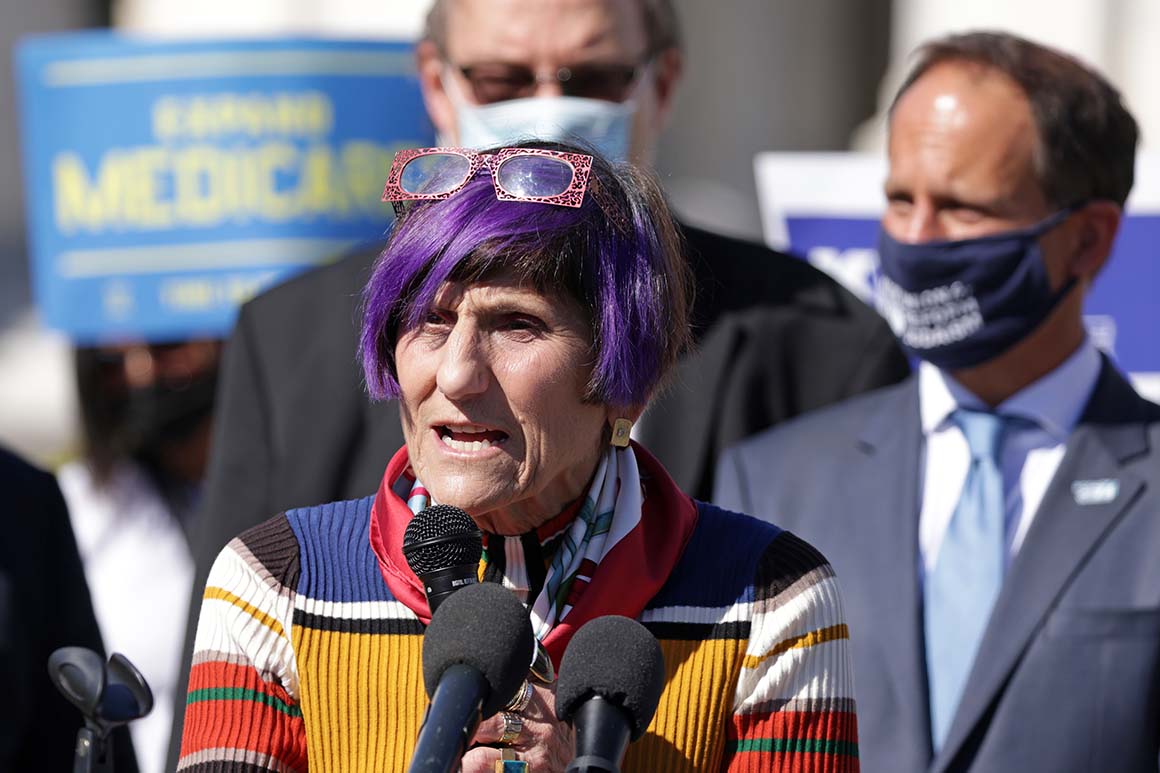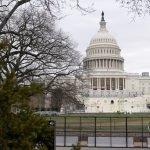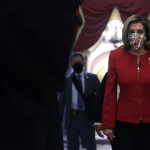The House plans to vote Thursday on a short-term funding patch to avert a government shutdown in less than 48 hours and punt the new deadline to mid-February, though hurdles still remain across the Capitol.
The vote comes after House Democrats announced an eleventh-hour deal with Republicans on Thursday morning, following days of late-night talks as both parties scrambled to prevent Congress from stumbling past the deadline.
Government funding will now run through Feb. 18 — weeks later than Democrats wanted — but House Appropriations Chair Rosa DeLauro (D-Conn.) said her party “prevailed” in securing a $7 billion increase to pay for resettling Afghan refugees.
In the House, Democrats expect to easily pass the measure, which does little more than extend current funding levels for another 11 weeks.
But there is no assurance of a drama-free Friday in the Senate, where a band of conservatives is still threatening to force a brief shutdown in an attempt to fight President Joe Biden’s vaccine mandate for the private sector.
“Unfortunately it seems Republican dysfunction could be a roadblock to averting an unnecessary and dangerous shutdown,” Senate Majority Leader Chuck Schumer said on the floor Thursday. “If there is a shutdown, it will be a Republican, anti-vaccine shutdown.”
Leaders of both parties have said there will be no funding lapse. But fast-tracking the spending patch requires the cooperation of every single senator, ramping up pressure on Senate Minority Leader Mitch McConnell and his leadership team to stem the conservative rebellion.
House Speaker Nancy Pelosi tore into the Senate GOP push to halt government funding over the vaccine mandate, and said House Democrats would not entertain their amendment push.
"If you think that’s how we’re going to keep government open, forget that," Pelosi said.
Partisan sniping in the Senate over amendments to annual defense policy legislation has also sucked up floor time in the upper chamber. There’s no guarantee lawmakers can avoid even a brief weekend shutdown, which, although disruptive, wouldn’t adversely affect federal agencies or employees.
Both parties say the skirmish over the short-term funding fix will be far simpler than the brutal fight to come over Congress’ full-year spending. Democrats are eager to pass a government funding bill that can finally include Biden’s priorities — the first such spending bill of his presidency. Without it, the federal government has continued to run on spending levels established under former President Donald Trump.
There’s also the problem of billions of dollars in looming cuts to Medicare and farm aid programs that could take effect next year — which the deal reached Thursday does not address. Those scheduled funding decreases are a consequence of the budget reconciliation process used to pass President Joe Biden’s $1.9 trillion pandemic aid package back in March.
Congress typically avoids such cuts with bipartisan ease, but Republicans haven’t been inclined to help while the majority party pursues big spending plans without GOP support. Democrats have pledged to find another legislative vehicle to address the drastic funding reductions next year. But they’ll still need assistance from at least 10 Senate Republicans, setting up another possible showdown as the GOP focuses on spending and inflation concerns ahead of the 2022 midterms.
And Senate Republicans have openly indicated they don’t plan to make resolving any of those obstacles easy for Democrats, particularly the upcoming battle over a bill to set government spending levels for the rest of the fiscal year.
In a statement, Sen. Richard Shelby (R-Ala.) made it clear the Senate GOP will enter full-year funding talks with the same priorities that have complicated discussions for the last year: “Maintaining legacy riders, eliminating poison pills, and getting serious about the funding we are going to provide for our nation’s defense.”
“If that doesn’t happen, we’ll be having this same conversation in February,” Shelby cautioned.





















